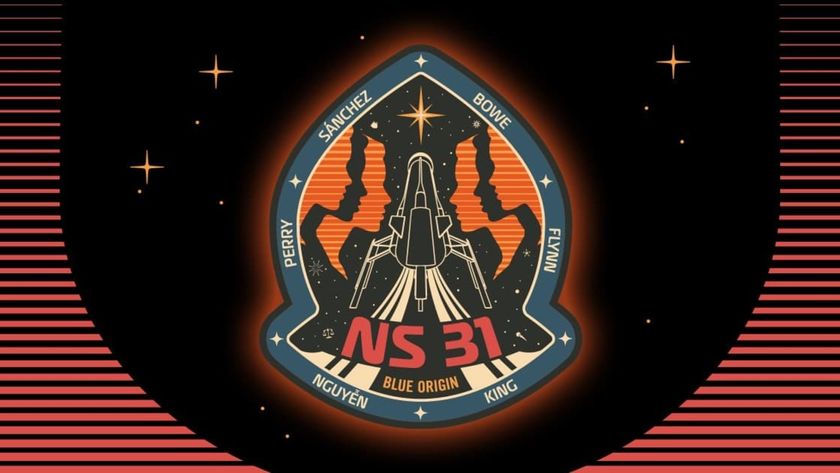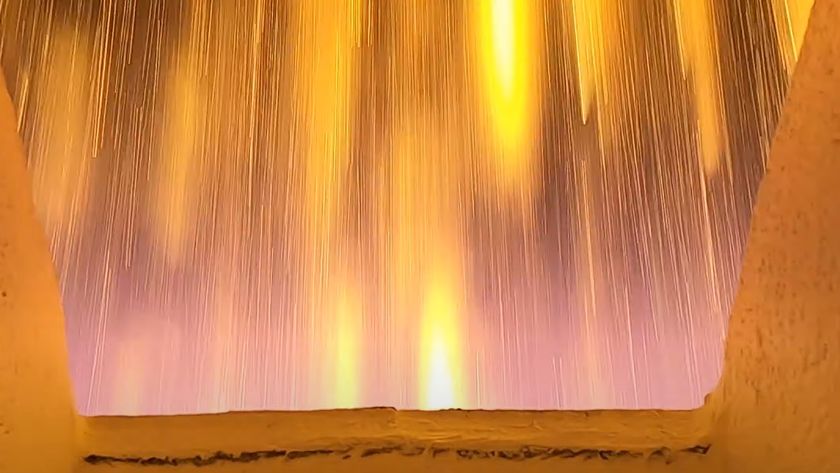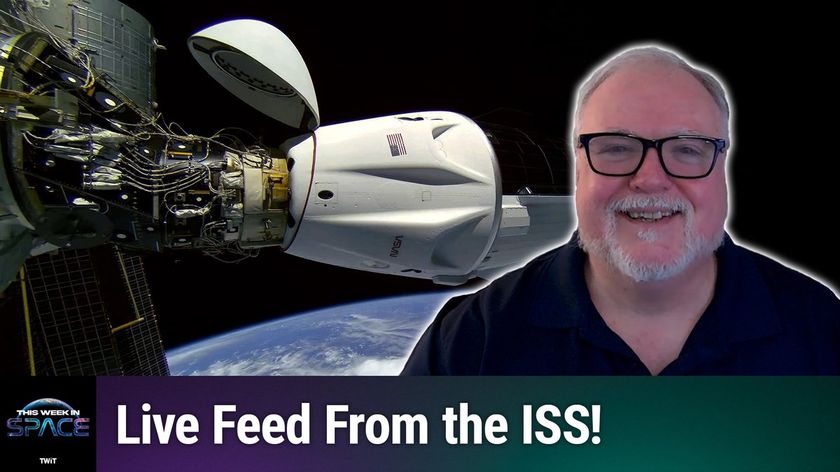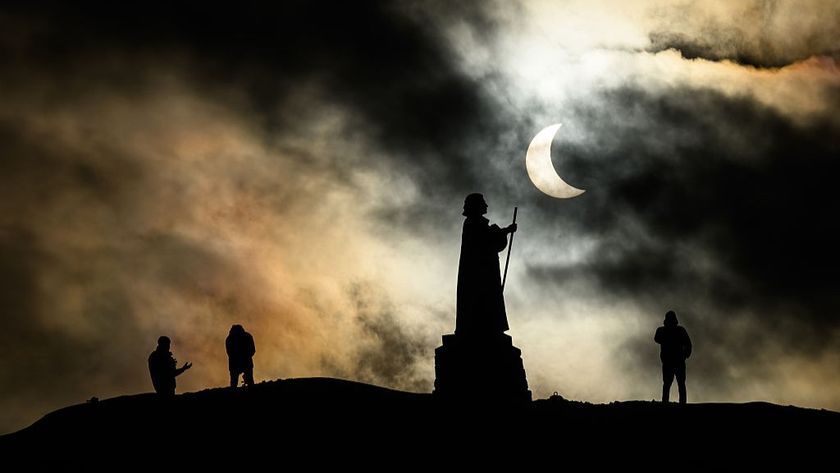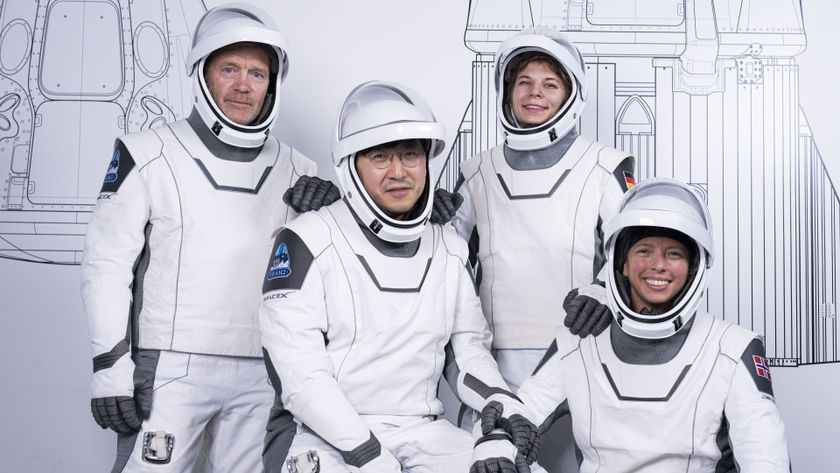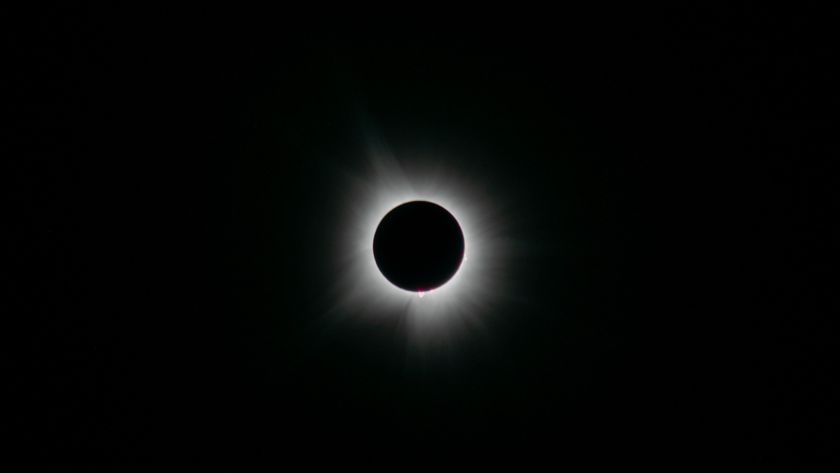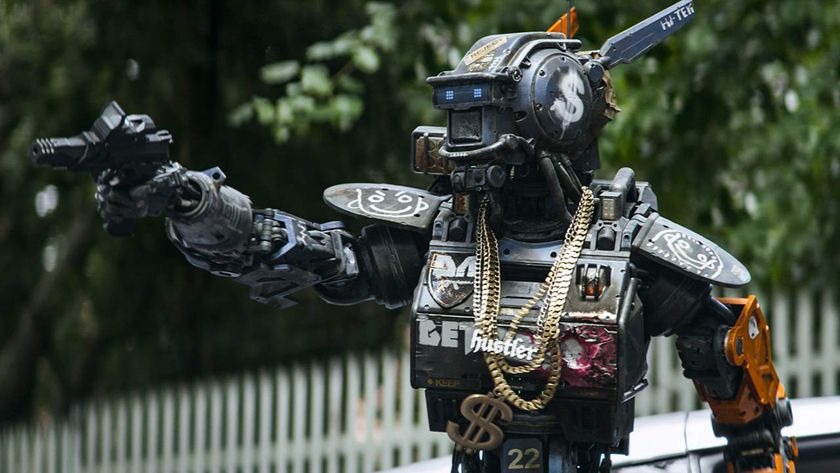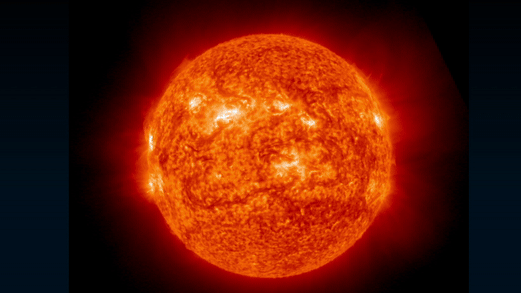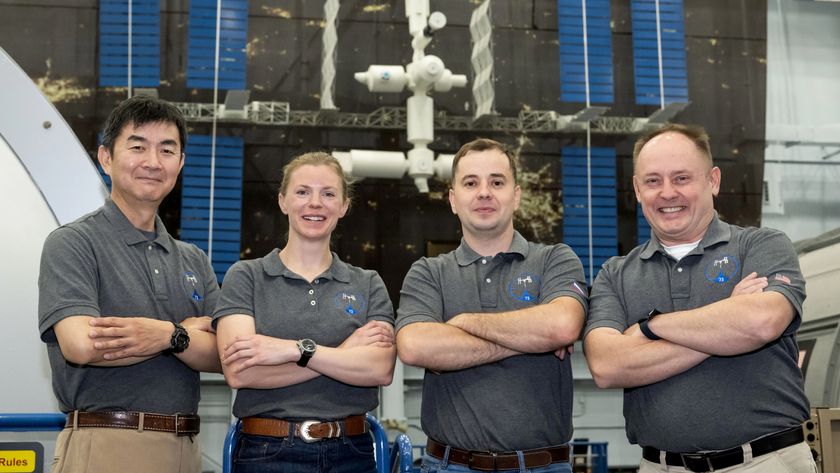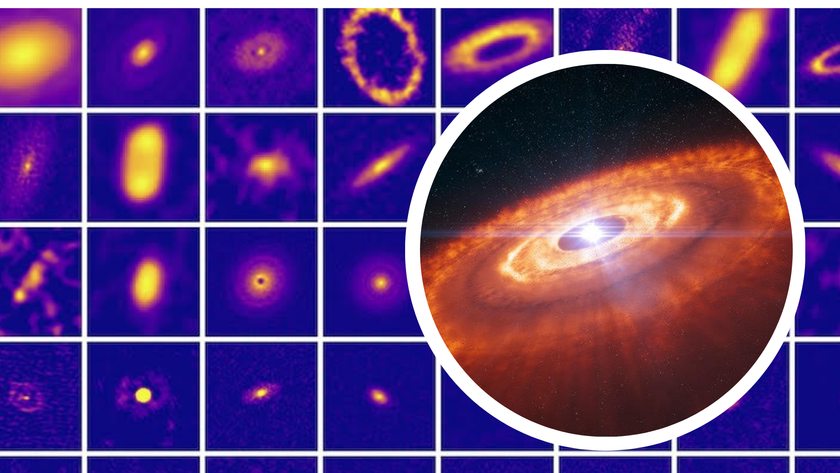SpaceX Rocket Performs Engine Test for Dec. 7 Space Capsule Launch
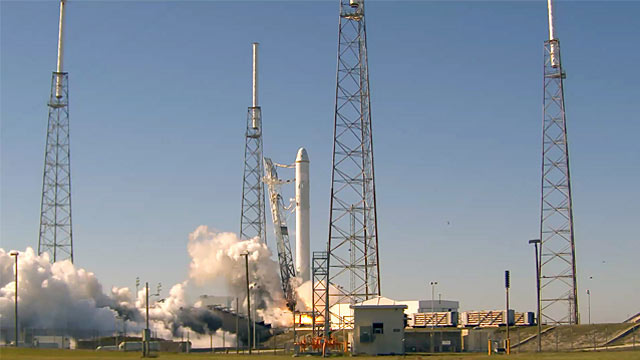
A rocket built by the private spaceflight company SpaceX performed an engine test today (Dec. 4), just days ahead of its planned launch to send a new commercial space capsule on its maiden voyage next week.
The nine Merlin engines of SpaceX's Falcon 9 rocket ignited at 10:50 a.m. EST (1550 GMT) for a brief 2-second test firing of the booster's first stage engines at the Cape Canaveral Air Force Station in Florida.
The results of the so-called static fire test, performed while the rocket was secured to its launch pad, are being analyzed and a preliminary review suggests that things went according to plan, SpaceX officials said.
"We will continue to review data, but today's static fire appears to be a success," SpaceX officials said in a statement.
The test was part of final checkouts ahead of the Falcon 9 rocket's planned Dec. 7 launch of SpaceX's first Dragon space capsule – a gumdrop-shaped spacecraft designed to make round trip flights to low-Earth orbit.
SpaceX initially attempted a static fire test earlier today at 9:30 a.m. EST (1430 GMT), but aborted the test at the T-1.9 seconds mark due to low pressure in the gas generator of one of the rocket's nine Merlin engines. Another previous engine test on Friday (Dec. 3) was also aborted after one of the engines experienced elevated chamber pressure.
The Hawthorne, Calif.-based SpaceX, short for Space Exploration Technologies, was founded by millionaire Elon Musk, co-founder of the PayPal online payment system and CEO of Tesla electric car company.
Get the Space.com Newsletter
Breaking space news, the latest updates on rocket launches, skywatching events and more!
The engine test is a vital check for the Falcon 9 rocket before its scheduled launch next week. The rocket will carry SpaceX's Dragon space capsule into low-Earth orbit for the spacecraft's first test flight. [Photos from first Falcon 9 rocket launch]
The company's Dragon capsule will separate from the rocket's second stage and make multiple orbits of the Earth during the test flight, demonstrating its operational communications, navigation and maneuvering abilities.
The spaceship will then re-enter the Earth's atmosphere and land in the Pacific Ocean a few hours later. The full duration of the test flight is expected to last approximately four hours, SpaceX officials have said.
If successful, SpaceX will be the first commercial company to launch and re-enter a spacecraft from low-Earth orbit.
The Dec. 7 launch window extends from 9:03 a.m. EST (1403 GMT) to 12:22 p.m. EST (1720 GMT). If needed, launch opportunities are also available on Dec. 8 and Dec. 9 within the same window, NASA officials have said.
SpaceX has a $1.6 billion contract with NASA to provide its Dragon spacecraft for cargo flights to the International Space Station following the retirement of the agency's space shuttle fleet. SpaceX plans to fly at least 12 unmanned missions to deliver supplies to the space station with its Falcon 9 rocket and Dragon capsule.
SpaceX also hopes to win a contract to one day ferry astronauts to the station as well – though the Dragon capsule is not yet man-rated to carry human passengers into space.
Next week's test flight will also be the first mission by any company under NASA's Commercial Orbital Transportation (COTS) program, which is designed to advance the development of private vehicles capable of carrying cargo and crew to the International Space Station.
Join our Space Forums to keep talking space on the latest missions, night sky and more! And if you have a news tip, correction or comment, let us know at: community@space.com.

Denise Chow is a former Space.com staff writer who then worked as assistant managing editor at Live Science before moving to NBC News as a science reporter, where she focuses on general science and climate change. She spent two years with Space.com, writing about rocket launches and covering NASA's final three space shuttle missions, before joining the Live Science team in 2013. A Canadian transplant, Denise has a bachelor's degree from the University of Toronto, and a master's degree in journalism from New York University. At NBC News, Denise covers general science and climate change.
